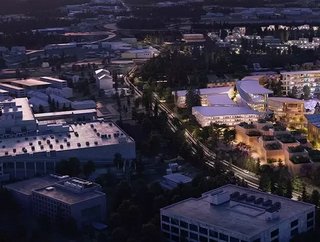Toyota and Woven Planet’s Revolutionary Smart City Concept

Technology has made its way into all aspects of life, from the launch of the internet to smart-home technology, cloud computing, and artificial intelligence. Since the beginning of technological existence, individuals and businesses have worked on ways to further improve what we have today by constantly pushing the boundaries of tech and automation.
Recently, one area that has come under the technology envelope is the automotive industry. The automotive giant Toyota pioneered many developments in the sector, including the Toyota Production System (TPS) - a form of lean manufacturing principle, hybrid synergy technology, and fuel cell technology.
“Toyota’s production system is based around continuous improvement, and we are hoping to apply those ideas with new digital tools to accelerate that development and learning to achieve a more helpful, beneficial society for the cities of the future much faster.”
The Future Of Automated Community Development
Toyota is planning a technological development like no other; the company’s most complex project to date. A smart city project appropriately named the ‘Woven City Concept’. While the concept of an interconnected city is merely an ideal, Toyota hopes to provide a glimpse of the future with its Woven City Concept. The company made headway on the project to be located in Susono City on Mount Fuji in Japan. The site is an old production facility called Higashi Fuji, which has been closed for over 50 years.
The concept will serve as an insight into a ‘human-centred’ approach to developing communities alongside technologies like automation, robotics, and artificial intelligence. While Toyota is a major player in the automotive industry, this project comes as part of its strategy to break away from motor production and expand into a wider field of automated mobility. “The unwavering themes of the Woven City are ‘human-centred,’ ‘a living laboratory’ and ‘ever evolving’,” says Toyota President Akio Toyoda. “Together with the support of our project partners, we will take on the challenge of creating a future where people of diverse backgrounds are able to live happily.”
The Woven City Concept
The road layout of the city will consist of three main routes, including one for automated driving, one for personal mobility vehicles, and one for pedestrians. There will also be an underground transport route for commercial use, to transport goods. The city will start with roughly 360 residents, including older citizens, young families, and investors - with plans to grow to 2000 residents.
The project is currently led by Woven Planet Holdings - in charge of the group is James Kuffner, a Stanford-trained computer scientist with experience working on Google’s self-drive and robotics projects. Woven Planet being the parent company to Woven core, Woven City, and Woven Capital, which all have stakes in the project.
According to Kuffner, good software is at the heart of the project. “That means developing the software earlier than the hardware, and it provides two main benefits. One is reusability, and we need to create algorithms and new value and services that we can deploy on many different types of hardware,” Kuffner says. “The second is upgradeability, and just as our smartphones can be upgraded with new applications and software, connected mobility will also have the same potential.”
The logistics aspect of goods delivery - including mail and parcels - will be carried out by automated robotics, as we can briefly see in the video in the form of drones and other vehicles. Robotics will also be used to collect rubbish and outgoing parcels from smart posts. “The development of a city takes place over many years and decades. But with digital technology, we can compress that and do many iterations of improvement,” says Kuffner.
Energy Partnership For Smart City Development
In May this year, the Japanese energy and materials company Eneos Corporation entered an agreement with the project to provide expertise on hydrogen-based supply chain capabilities, which will be implemented around Woven City.
Woven Plant has also acquired the level 5 division of the Lyft ride-hailing company to support the development of automated self-drive mobility.






